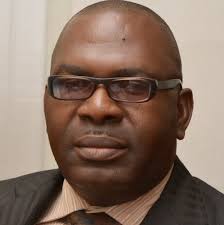Let Us Make A New Deal For Nigeria – Soludo Says
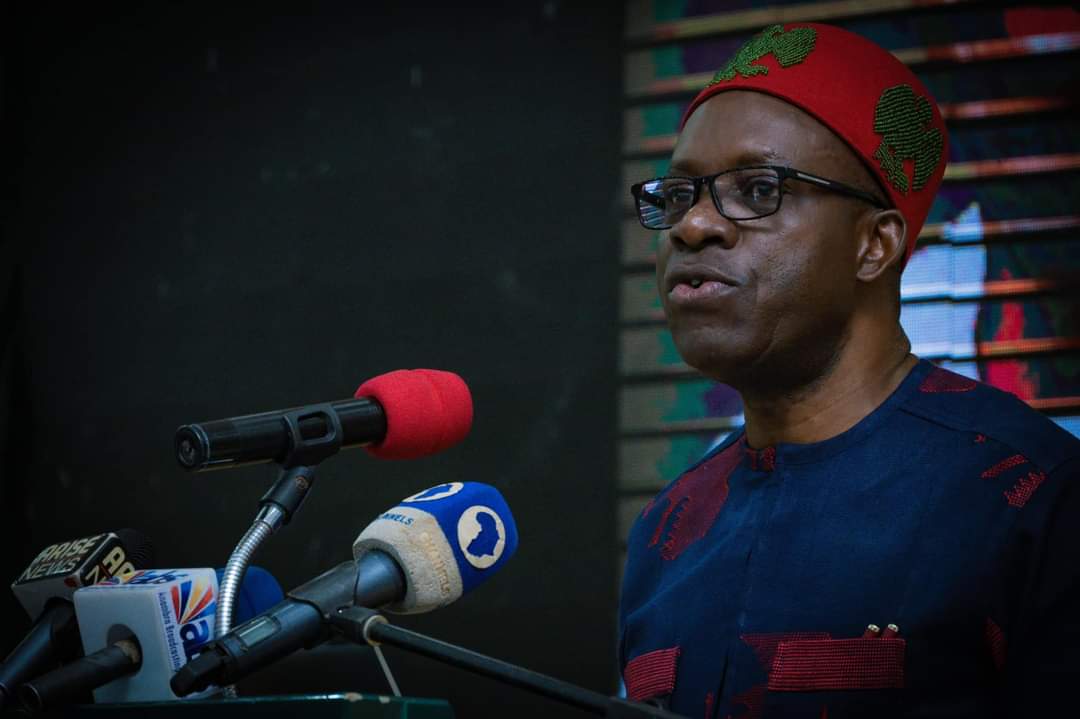
Being a Convocation Lecture delivered by Chukwuma Charles Soludo, CFR Governor, Anambra State at the Veritas University, Abuja; 7th November 2024
1. This University is a promising unique experiment in Catholic higher education, and I am glad to celebrate with you on this 13th Convocation ceremony. About 2014, I led a discussion on the financial sustainability of the University under the auspices of the Catholic Bishops Conference of Nigeria’s (CBCN) finance committee. I am therefore thrilled to learn that the University has not only grown phenomenally over the past 10 years in every aspect but has become a real centre of excellence. Let me salute the vision of the founding fathers as well as the hard work and determination of the successive Management of the University to bring it to this spectacular stage. May I at this moment congratulate all the 800 graduating students for having been found worthy in character and learning to deserve the degrees of this University. Perhaps, commiserations are also in order, and I will come to this later.
2. I confessed to your Vice-Chancellor, Rev. Fr. (Prof.) Hyacinth Ichoku (who was my student) a few days ago that I was not sure what to say to you at this event. Graduation speeches have become a cliche. I am not sure I remembered what was said at my own graduation lecture nor even who delivered it. In sum, they have become motivational speeches on how the fresh graduands should seize the moment and conquer the world— with a litany of principles and practical guides to successful living. There are dozens of self-help books and with phones in your hands, you can Google and educate yourselves better. Or better still, with variants of Artificial Intelligence platforms, AI can help you piece together a better “to do list” for fresh graduates. So, increasingly graduation speeches might become a waste of time for everyone. I will therefore disappoint you since I will not rehash those “how to succeed” homilies here. Quite frankly, I expected a near empty hall for this event!
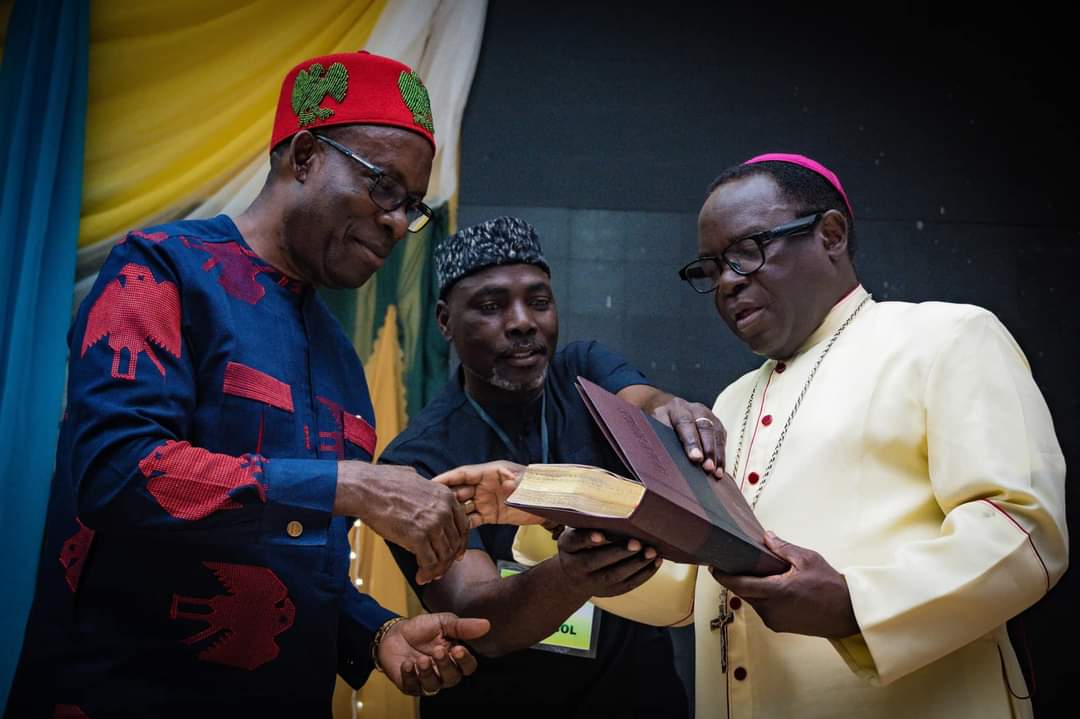
3. For me particularly, what should a state governor at this moment in Nigeria (governors are largely the butt of many jokes) be telling fresh graduates? Second, my generation of the 1960s,1970s and older ones constitute what I describe as the “limited edition” generation. Someone noted that we are the last generation to listen to and take care of our parents and the first that are forced to listen to and even take care of our children until death. So, I just wonder whether we should not reverse the roles: you do the talking while I do the listening? Or can you endure the torture of my boring advisory?
4. As I stand before you, I can feel some parallels between my own graduation and yours today. Yes, I graduated 40 years ago in 1984, and I recall the hope and despair we all felt as we came from our various postings for National Youths Service for the Convocation ceremony. The military was groping in search of answers to Nigeria’s myriad and seemingly intractable social, political, and economic problems. It was the year of severe austerity measures, with long queues for the so called “essential commodities” (rice, salt, milk, vegetable oil, etc) as well as rationing of foreign exchange. The Nigerian Electric Power Authority (NEPA) was derisively described as meaning “Never Expect Power Always,” while the less than 200,000 available telephone lines were largely moribund. The Federal Government of Nigeria (FGN) removed subsidy on students’ feeding in the universities and the subsequent Structural Adjustment Programme (SAP) came with all the SAP-related riots and protests. ASUU strikes closed universities for months/years. That was the beginning of an era when jobs for university graduates could no longer be taken for granted. There was acute scarcity of basics with rising inflation, unemployment, and poverty, while the War Against Corruption and Indiscipline was launched. This was the year we all thought that Nigeria had fallen apart. Sonny Okosun summed up the collective despair and hopelessness in his famous song entitled: “Which Way Nigeria?” Please Google and listen to the song—40 years ago!
5. Fast-forward to today, 40 years after. You are all graduating in 2024—the year that Nigeria finally summoned the courage to end decades of debilitating and destructive petrol subsidy as well as forex and electricity subsidies, with all the consequential shocks including, once again rising headline and food inflation as well as poverty and unemployment. It is also the year of the big floods which have affected 34 states and displaced nearly two million Nigerians. Criminality has become the “new economy”—banditry, kidnapping and drug epidemic. Much of our public service is transactional rather than transformational, and it is increasingly becoming difficult for people to render service except it benefits them personally. The quest for money as an end is deafening, and for a growing percentage of our youths, their motto in life is: “get rich young or die trying.” For many, it is increasingly difficult to maintain balance especially in a culture where virtue has little currency.
6. The global megatrends are such that only those who have scalable skills and continuously innovate and adapt will thrive. The United States has just elected Donald Trump as president with some trepidations and hopes for what it portends for the world. Soon, you will face some uncomfortable truths. For starters, your dream jobs are not there, and about 80% of you will not practise what you studied. It is scary and I am not sure how adequately the University has prepared you for survival in chaotic times. As I draw the parallels between my time of graduation and yours, I am not sure whether to say congratulations or commiserations. But what you make of the current situation depends on whether you see it as a challenge or an opportunity. For me, Nigeria remains Black man’s greatest opportunity.
7. The next one year–your one year of National Youth Service may be the year for re-setting. You will meet new people; you will stumble on new ideas—good and bad; and you may even try some adventures. One day a week, you will have what we used to call a day for “community service.” Make that day count! It might be your rehearsal for selfless public service. Start with Volunteerism: volunteer to serve at every opportunity. Do something good for the benefit of society from which you do not expect to be paid. It is a pivotal year, your balcony moment, and you must make it count. During my youth service at the then University of Ife (now Obafemi Awolowo University, Ife), I attended all M.Sc classes in the Department of Economics—though I was not a registered student. Perhaps, part of the impetus for me to resign from Coopers and Lybrand after five months to go back for post graduate studies may have come from my NYSC experience. My tailor in Abuja, Mr. Adekunle from Osun State, is a graduate of Geology from the University of Maiduguri. He sold used clothes during his NYSC in Akwa Ibom, and from there learnt tailoring during the same service. Today, he has more than 150 tailors, 30 graduates in Management, and other staff—all totalling over 200, working for him. I can cite over 100 similar examples. Thus, what happens in this one year of your ‘national service’ might determine whether Nigeria ends up as a half-empty or half-full glass for you.
8. Still on your personal survival, let me add a little digression. Many of you probably only studied/read seriously while preparing for examinations, and believe that henceforth, the torture is over. I have bad news for you. Your bachelor’s degree (B.A) might mean “Begin Again.” In today’s world, there is a connection between continuous learning and earning. If you stop learning, you start decaying or you can sum it in a slogan: learn more to earn more! I have heard several of the richest people in the world brag about how many non-fiction books they read in a year. I will not say more.
9. As you venture into the uncertain world, you will need all the help you can get. You will need all the networks and partnerships you can get. Success in life is not just about what you know but even more so about whom you know. As the saying goes, if you want to go fast, go alone, but if you want to go far, go together. So, you will need the help of others to get ahead. Soon you will start looking for jobs or other ‘helps’ from people to jumpstart a new life. For some decades I always had young people approach me to help them find a job, and when you ask, ‘what do you want to do,’ a common answer was, “anything.” Of course, “anything” cannot take you “anywhere” because as the saying goes, “if you don’t have a destination in mind, any road will take you there.” So, my only tip to you on this occasion is to always seek intentionally to add value. Before you approach someone for help, there is a minimum investment/preparation you must make to be ready to be “helped.” When you approach people, start with what value you will bring to the table—how you intend to ‘help them.’ This might sound counter intuitive.
10. Paradoxically, that is also how you make money. Making money cannot be an objective; adding value is what makes money. Think of it for a moment. The richest people in the world (through enterprise, and not through rent or criminality) are those who set out to solve specific problems for society and money followed as a reward—naturally!. Think of the inventors, the software developers who set out to connect people socially (Facebook, Twitter, etc), industrialists, consultants, tailors, traders, or anyone seeking to create value for customers, and how money followed them consequently. So, the next time you approach someone for help, start by telling them what you can also do for them, and you will see that they are more likely to listen to you than if you approach them for charity. When you are going to apply for job, spend time to research how you can help to improve the fortune of the company. Instead of just “applying for a job,” write them a proposal on what you can offer, and you will see the difference. Try it! Sorry, I veered off into advisory which I promised not to get into.
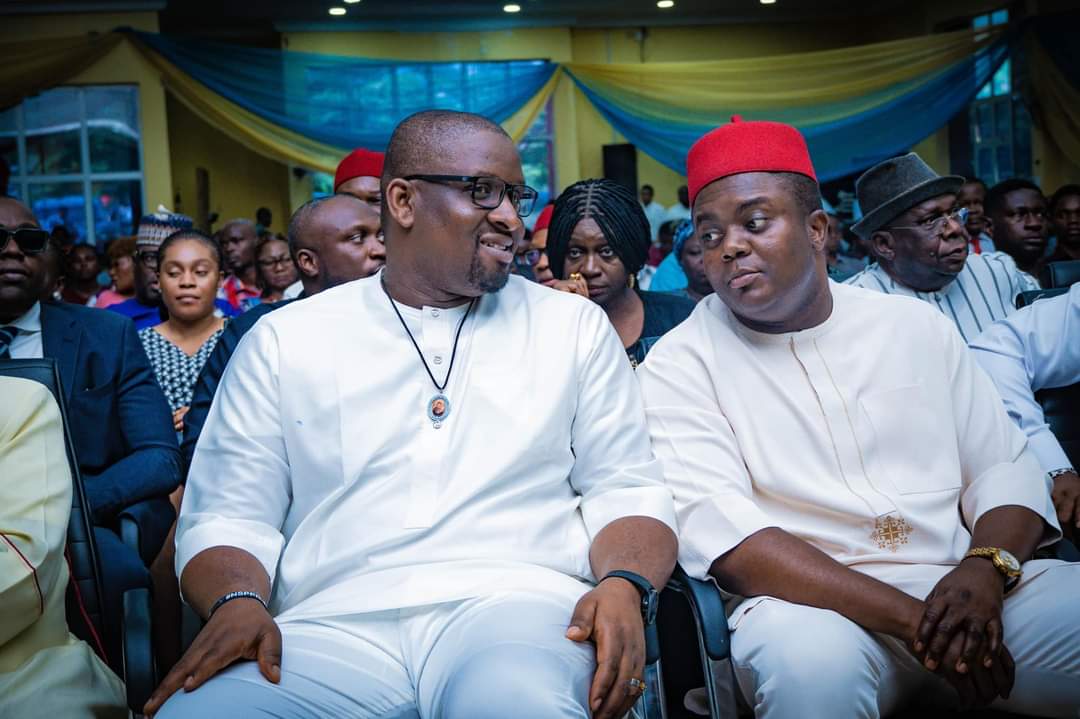
11. Let me share some statistics that may jolt you to action. Without a doubt the first need of man is survival and safety. Maslow prioritized human needs as: physiological needs (air, food, drink, shelter, clothing, sleep, and health), safety, love and belonging, esteem, and self actualization. Again, the reality is that given Nigeria’s current income distribution, more than 60% of you may not go beyond satisfying the first need –physiological needs. When I was Governor of the Central Bank, we had a study that gave us a casual inference about the income distribution/inequality in Nigeria (beyond the Gini coefficient). We discovered that 92% of the millions of depositors in Nigerian commercial banks had bank balances of N300,000 or less. But this 92% of depositors controlled about 7% of the total deposits, while the 8% that had over N300,000 controlled 93% of the total deposits. I understand that a similar exercise was repeated several years later with a threshold of N500,000 and the distribution was largely unchanged. Someone can crudely interpret this to mean that about 8% of the population controls 93% of the income, while 92% of the people controls just 7% of income. Crude as the statistics may seem but it tells a thousand stories and highlights the context of a society in which our new graduates must thrive and excel. I know many of you will already be casting and binding and praying that it is not your portion to end up among the 92%, or among the many that may remain unemployed or underemployed for several years after your national service. The point however is that if we all do not work to alter the meta-level architecture that produces such outcomes, much of our efforts at individual survival might be circumscribed.
12. This brings me to my core message to you: the current situation in Nigeria is not destiny. Everyone—I mean, everyone including you, the new graduates, can and must do something about it. Nation building is too serious a business to be left to the politicians or public servants alone. A new social contract with basic socio-economic rights is possible. Luckily, you are graduates of Veritas University—whose mission broadly interpreted is to mould new Nigerians that will create a new Nigeria. Let me bore you by reminding you of the Mission of your University, as boldly stated on the school’s website as follows:
“The mission of Veritas University is to provide its students with an integral and holistic formation that combines academic and professional training with physical, moral, spiritual, social and cultural formation together with formation of Christian religious principles and the social Teachings of the Catholic Church….Based on Christian inspiration and Christ’s sacrificial witness, the University shall promote authentic human and cultural development modelled on the person of Christ, and shall champion the cause of justice and uprightness in society, work to empower the weak and the marginalized, and promote dialogue and collaboration in human relationships at various levels and among various cultures and religions….. Thus, graduates from the Veritas University, Abuja, after successfully completing their studies, should be able to use the knowledge for the upliftment of themselves and the Nigerian society…”
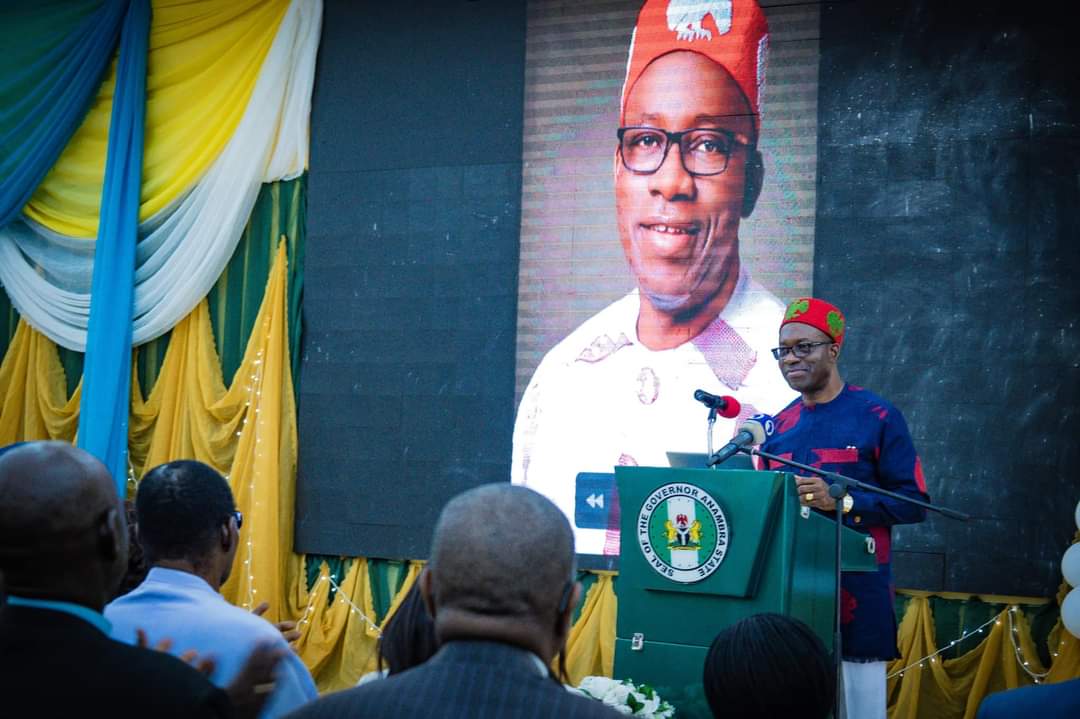
13. Wow! The public-purpose mission of your university is a bold statement of progressive social thought. Combine the Catholic Social Teachings with Rick Warren’s book on “The Purpose Driven Life” and laced with Chapter Two of the 1999 Constitution of Nigeria (“Fundamental Objectives and Directive Principles of State Policy”) and you have a robust Progressive ideology and manifesto. I pray that these documents can be mandatory readings in one of the ‘General Studies’ courses of your university. If your students/Nigerians take them as their compass in pursuit of private and public good, a new Nigeria will indeed be on the way. These documents motivate us to a life driven by purpose above self and remind us that to serve is to live. Selfless public service is the greatest form of philanthropy. I am in love with pragmatic progressivism, and particularly the Chapter Two of our Constitution which provides a compass to a competitive, and yet humane and compassionate society where no one is left behind. It seeks to establish the social contract between the State and the citizens, although this contract is adjudged non-justiciable.
14. Making much of the aspirational contents of Chapter Two of the Constitution justiciable will create a new generation of Nigerians who feel a great debt of gratitude and therefore fired by intense sense of nationalism/patriotism to want to “give back to society.” Increasingly, I meet young people who argue that they do not feel any sense of obligation/duty to the country. They do not feel that the country has invested in them to demand patriotism and duty to country. Unlike my generation, the nation did not offer them qualitative and tuition-free education at all levels. Why, after pulling themselves by their own bootstraps, should they care for Nigeria that has not cared for them? Sometimes it is difficult to respond appropriately without bringing God into the conversation. Often, my answer is to remind everyone that if God in His infinite wisdom decided to make us Nigerians, there must be a purpose—and that purpose must be for us to contribute to His creation by leaving the country better than we met it. I must admit that this Homily, ennobling as it sounds, is not enough. We must collectively do something to give every Nigerian a stake in the future of the country.
15. Nigeria is undergoing a fundamental and disruptive reset. Hopefully, we have ended the debilitating scam called fuel subsidy as well as the forex and electricity subsidies. We have entered a “muddling-through” phase which we must navigate carefully. Soon we must migrate from the destructive subsidies that benefitted largely the urban elite to a productive social contract that creates opportunity for all. Take education for example. I am a beneficiary of tuition-free, qualitative primary, secondary and university education in public schools. We even had subsidized meals at the public University until government could no longer afford it. If there was nothing else that the military regimes used our first and second oil booms for, at least I can attest to their investment in education. My generation will remain grateful, and for some of us, much of our life, especially in public service, is payback time.
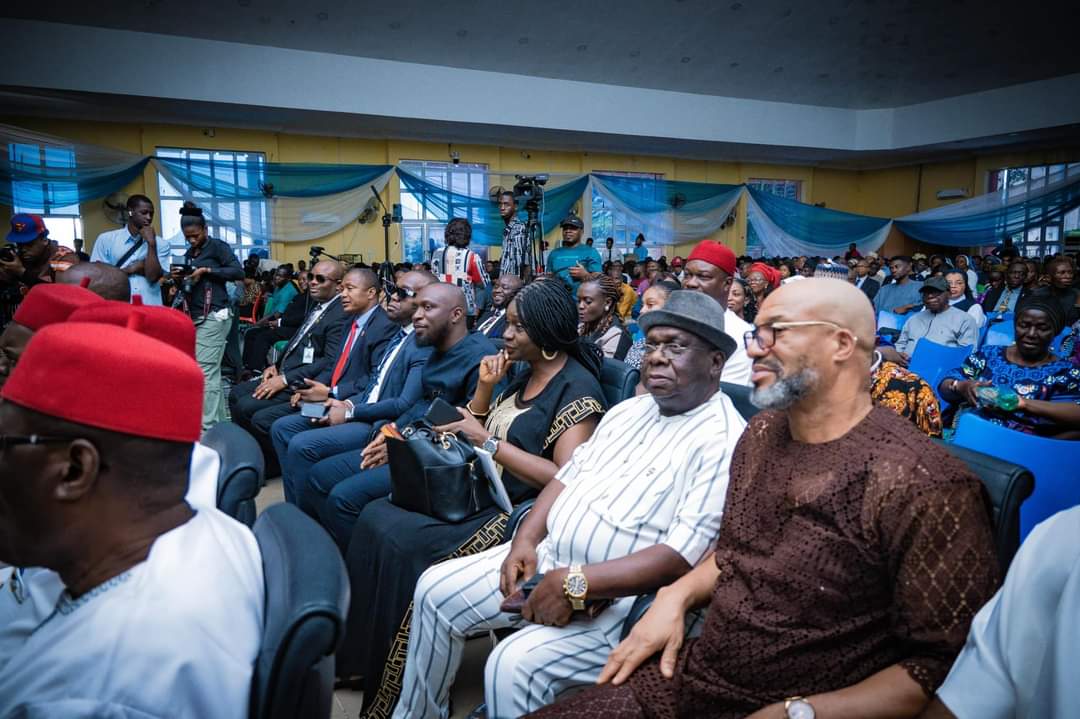
16. As we muddle-through the shocks occasioned by the needed disruptive changes, we must sit and craft a pragmatic New Deal for Nigeria plus an emergency national infrastructure plan akin to the U.S Marshall Plan for Europe after the Second World War. A New Deal for the U.S was a “series of programs, public works projects, financial reforms, and regulations enacted by President Franklin D. Roosevelt in the U.S between 1933 and 1938 to rescue the U.S from the Great Depression”. Some elements of the New Deal such as the Minimum Wage legislation, Draft Tax Reform Bill, planned cash transfers, etc as well as the audacious Lagos-Calabar Coastal highway and Lagos- Sokoto highway are positive signs. This moment calls for historic coordination between the federal and state governments to agree of the critical elements of the augmented New Deal and Marshall Plan as well as their implementation to deliver outcomes within the shortest possible time. A key issue will be the ‘national plan’ for deployment of the apparent “fiscal/subsidy windfall.” I say “apparent” windfall because much of the nominal increase in fiscal revenues is largely money illusion. In both US dollar terms and real purchasing power terms, much of the current revenue windfall is still far lower than previous years. For example, a state that received N5 billion or US$43.4 million as monthly FAAC allocation in 2007/8 when the exchange rate was N118 to the dollar and a bag of cement sold for a few hundreds of Naira would need to receive at least N77 billion a month at current exchange rate and prices to be restored to its 2007/8 position. But the state does not get even a third of such. Fixing the oil output will be a critical game changer in the short to medium term. However miniscule or even non-existent the windfall in real terms, the federation must be seen to intentionally execute a new Deal that pragmatically coheres with our peculiar federalism while urgently addressing the needs of the people.
17. Beside the humongous investment to build infrastructure for the 21st century, we urgently need to prioritize our national investment in human capital— to transform our abundant human resources into productive capital. In the 21st and 22nd centuries driven by digitalization, only societies that intentionally mine their human capital will triumph. Deploying our depleting natural resources to invest in the bridge to the future—human capital—will not only give our teeming population a stake in the society but also secure their future. As a country, we must aim to remember this time in our history as the moment when we had the courage to remove the negative subsidies but deployed a part of the windfall to benefit our children and youths—via their education and health. At the minimum, we should set a national target to bring down the out of school children to zero within 5-8 years, and qualitative tuition-free secondary education to all Nigerian children within 10 years, while mainstreaming selected centres of excellence for the exportable labour force.
18. As pragmatic progressives, we are trying the experiment in Anambra State. Within our two and half years in office, we have kept our eyes on creating this future we desire. Besides the historically unprecedented investment in transport networks especially to communities/local governments that never saw tarred roads/bridges/flyovers, aggressive urban regeneration, state-wide pipe-borne water revolution, three new cities including an entertainment/leisure city (fun-city) and an industrial city, breaking the 33-year old jinx of giving Anambra a government house/governor’s lodge, reforming and strengthening the public service, massive investment in security, law and order; etc, we have prioritized human capital development as our beacon to the future. We aim for human capital that is productive at home and exportable abroad. There is an ongoing infrastructure revolution in our public hospitals—building/modernizing and equipping 326 primary health centres in 326 wards in the state; remodelled and equipped three general hospitals and completing/equipping five new general hospitals; pioneering telemedicine; building best-in-class trauma centre in our tertiary hospital as well as a world class college of nursing sciences, etc. Our health policy offers free antenatal services (with drugs) as well as free delivery (including CS surgeries) to pregnant women in all public hospitals. So far over 60,000 women have benefitted and with near zero mortality rate.
19. On education, beside the massive infrastructure upgrade of primary and secondary schools (with some migrating to smart education), we set out to end the era of schools without teachers by employing 8,115 new teachers. We now have free education—free of tuition and all levies—in all public primary and secondary schools in Anambra. We also subsidize Mission primary and secondary schools by posting thousands of government teachers to their schools and costing government over N1.3 billion per month as subsidy to them. We also make grants to them as well as grants to Mission tertiary institutions. Within the first nine months of the programme, enrolment in public schools increased by 18.7% and out of school children dropped to 2.9% — the lowest in Nigeria among the thirty-six states and FCT. Currently, we are aiming for zero out of school children. Our investment in youths, with our innovative ‘One Youth, 2Skills Programme’— which the FGN has now adapted into the national curricula, has created over 5,000 new entrepreneurs, with additional 8,300 soon to complete their apprenticeship and will be empowered to become entrepreneurs. Our innovation district— our own Silicon Valley—aims to create a One Million digital tribe army, and so far, tens of thousands have received digital training including Coding skills. Many are already employed in the digital space. We are very intentional in this drive to empower the next generation to take charge of their lives and move Nigeria forward.
20. Our goal is to break the dynasties of poverty by making education the ladder of opportunity for the poor to break the vicious circle. When I was growing up, the children of the rich and the poor attended the same school and taught by the same teacher. If the children of the poor were brilliant, they had a chance to do better than the children of the rich. Today, not anymore! The children of the rich now attend expensive and well-resourced private schools while the children of the poor, especially the poorest of the poor attend poorly resourced public/community schools. With poor learning outcomes, these children of the poor end up with no skills/opportunities and end up poor while their own children end the same way. Poverty therefore becomes a dynasty. All of us must intentionally work to break this vicious cycle. A new national social contract can intentionally eliminate illiteracy and upscale the labour force within a generation. Yes, it is possible!
21. By 2050, it is expected that there will be more than 400 million Nigerians and by the end of this century, Nigeria will be the third most populated country in the world after India and China. With an ageing Europe and North America, Nigeria must opportunistically prepare to become the number one supplier of labour to the rest of the world. Probably by then, export of labour will be Nigeria’s largest source of export earnings. So, the Nigerian state must deliberately prioritize and invest in the people—especially their health and education. We may have to re-think the current structure and model of education in the country.
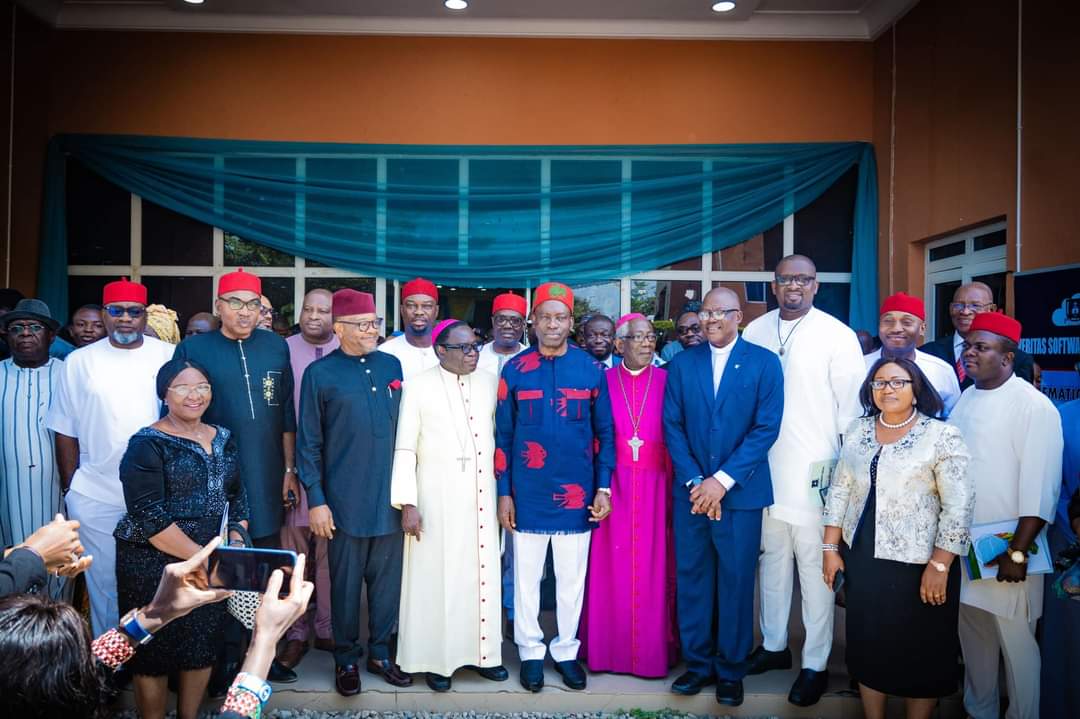
22. We must now conclude. The governing elite has a state of emergency in our hands, and we must not fail the country. Every citizen is called to duty. God did not make a mistake in making us Nigerians. To our young graduands, the Veritas University has imbued you with knowledge, skills, and a social thought to mobilize you for public good. The future you seek is in your palms, and only those who plan can control the future. As I look into your eyes, I can see hope. Yes, Nigeria may not have offered you much, but in fulfilment of your divine purpose on earth, you will be expected to give more than you have received. I therefore urge you all to show up and participate in shaping the destiny of this nation. We are Nigerians and this country belongs to all of us. We are all birds of passage but each of us must account to our Creator what we did while at our pilgrim post here on earth. As I look around, I do not see many of the doyens of Nigeria’s first, second and even third republics. Let no one tell you that you are the leaders of tomorrow. That tomorrow is here: take it and shape it so that Nigeria can realize its manifest destiny as the greatest Black power and the leader in the 22nd century. May your road be rough, and let us get it done, together!






